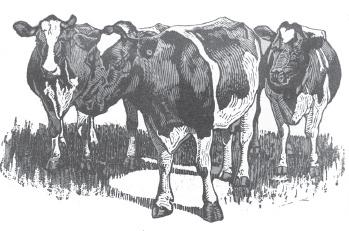
3 minute read
Paul Minor
Delving Into Yester~Year
Local historian and writer Paul Miner takes items from The Republican’s Yester-Year column to develop an interesting, informative and often humorous article.
Advertisement
To the Editor: At random, I chose page 3 from March 9, 1882, to learn what The Republican subscribers read that day. The poem “My Curse” launches the page. I cannot divine its meaning; the refrain, an unfathomable malediction, condemns, “Unstable as water, thou shalt not excel.” In a short tale, a lovely princess is betrothed to a king she has never met. Princess Elizabeth, “with blue eyes like the violet hue and lips like cherries,” arrives with her father and his retinue for cathedral services. A mysterious and wondrously gifted organist appears, replacing the previous one who was dead.
Hearing the music, the king proclaims the organist will play at the wedding the following day. But the princess’ eyes had met those of the organist “in a long yearning look.”
It was Bertram Hoffman, her music teacher and the man she truly loved, and that evening she professed her feelings. But their love could never be.
Wedding day, “flame colored flowers waved by the wayside” and flame-colored leaves littered the ground. Ripe wheat “waved like a golden sea,” and berries dropped “in red and yellow clusters over the rocks and along the Rhine.” I forgot to mention they were in Germany, possibly Bavaria or Baden-Wurttemberg. The cathedral was resplendent. Then Elizabeth appears on a “snow white palfrey and clad in snow white velvet.”
Downcast Elizabeth faced a horrid life married to a stranger. Then, surprise, surprise, Bertram actually was King Oscar. He had hatched “a stratagem” to ensure Elizabeth had the hots for him.
And her father was in on the ruse. Well, “for once two hearts were made happy by a royal marriage.” To my thinking, Elizabeth would have been furious at hubby and dad. Alongside was an item declaring horn and hoof shavings contained 25 times as much nitrogen as ordinary stable manure. Further down was a recommendation to paste old newspapers to chicken house and stable walls to keep out cold drafts.
Intending to tie the knot with his 20-year-old fiancée, a young man was flummoxed when the Newport, Rhode Island, city clerk refused to issue a marriage license for that evening. The girl wasn’t old enough without her father’s written approval.
Producing letters from the agreeable father was not enough for the clerk. However, he suggested taking the train to Massachusetts or Connecticut, “where no rigorous law held sway.” That’s what they did the next morning. A doctor failed to discern what ailed him mightily. His condition worsening, he noticed his sporadic “fluids” were “covered with froth or filled with brick dust sediment.” His minister recommended a proven cure, and “the most pronounced case of Bright’s disease” was overcome.
The panacea? Warner’s Safe Kidney and Liver Cure. Corroborating letters accompanied the story, signed by the manufacturer, a doctor, a mayor, postmaster, two newspaper editors, county clerk, district attorney, a capitalist, a member of Congress and the rector of St. Paul’s Church in Rochester, New York.
That doctor declared hundreds of daily deaths were attributed to heart disease, apoplexy, paralysis, spinal complaint, rheumatism, pneumonia and other causes “when in reality it was Bright’s disease of the kidneys.”
The page had something about Nero’s excesses, a whipped potatoes recipe, instructions for constructing a lady’s dusting cap, advice on boiling tainted water, tips for cleaning greasy pans and kettles, making cottage cheese, and something about fashioning window lambrequins.
The page wrapped up remarking that Civil War General Fitz John Porter’s back pay “should he be restored,” would amount to $115,000.
Having better intelligence about enemy strength and position at the Second Battle of Bull Run, Porter reluctantly obeyed his superior’s conflicting orders and during the ensuing engagement, Union forces were defeated. Porter was court martialed for disobeying orders and misconduct the following year, and dismissed. Army politics and personal loyalties were involved.
Porter immediately and persistently sought for two decades to clear his name. In 1882, President Chester Arthur commuted Porter’s sentence and Congress four years later exonerated him and restored his commission, minus back pay. Vindicated, he retired from the army.
I don’t know how long Elizabeth and Oscar were married, but I’m betting she reminded him every chance she got about his stunt for what likely seemed to him far more than 20 years.
Paul Miner Lizton ______________________________________________________________________









